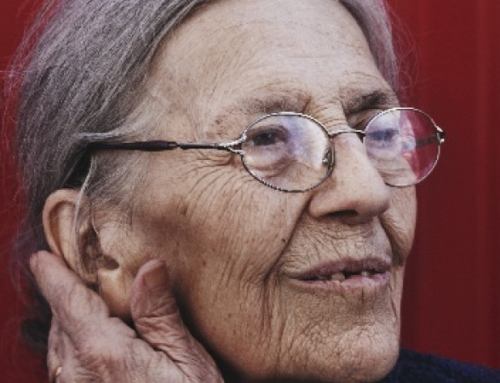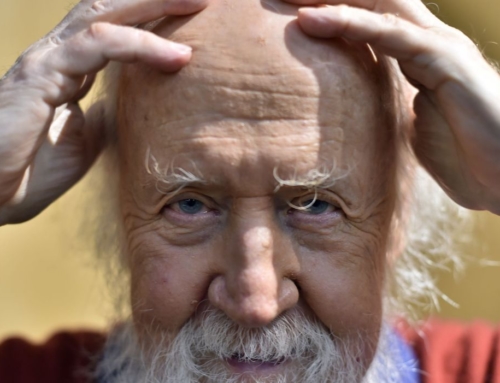In June 1935, he set up the Presbyterian Constitutional Covenant Union. During this period he gained a reputation as one of the few true scholars who was able to debate the growing prevalence of modernist theology whilst maintaining an evangelical stance. The second was the Old SchoolNew School controversy, which occurred in the wake of the Second Great Awakening and which saw the Presbyterian Church split into two denominations starting in 18361838. [6] This fear was reinforced by the report of the psychologist James H. Leuba's 1916 study indicating that a considerable number of college students lost their faith during the four years they spent in college. As strong as Trump's support is among conservative Christians, some prominent figures in those ranks are seeking alternatives in the GOP campaign. Westminster Theological Seminary | Prepare for Far Greater Their emphasis was more on the authority of scripture and a conversion experience, rather than on the Westminster Confession. Arthur, a Baltimore lawyer, was 45 and Mary was 24 when they married. Westminster Theological Seminary [5] He was even more concerned about the corrupting influence of politics on Christianity and saw the social gospel as a terrible warning. The ratio of conservative scholars to liberal scholars is about 90 percent to 10 percent. Princeton was the preeminent Reformed seminary of the day, but liberalism had been gaining a foothold there. The report went on to conclude that the Presbyterian system had traditionally allowed a diversity of views when the core of truth was identical; and that the church flourished when it focused on its unity of spirit. It should have demitted the complaint to the presbytery and could have done so with instructions that the presbytery hold a heresy trial. This is where Green comes in. The ACLU sent in renowned lawyer John Randolph Neal Jr. to defend Scopes. The founding of Westminster began in 1929 when J. Gresham Machenwho had spent 23 years as an esteemed scholar at Princeton Theological Seminaryresigned from his Princeton post. The first major proponent of higher criticism within the Presbyterian Church was Charles Augustus Briggs, who had studied higher criticism in Germany (in 1866). In the address, he announced that higher criticism had now definitively proven that Moses did not write the Pentateuch; that Ezra did not write Ezra, Chronicles or Nehemiah; Jeremiah did not write the books of Kings or the Lamentations; David did not write most of the Psalms; Solomon wrote not the Song of Solomon or Ecclesiastes but only a few Proverbs; and Isaiah did not write half of the book of Isaiah. The series was conservative and critical of Higher Criticism but also broad in its approach, and the scholars who contributed articles included several Presbyterian moderates who would later be opposed to "fundamentalism" such as Charles R. Erdman Sr. and Robert Elliott Speer. (Probably the reason why the issue of evolution has obtained such an iconic status within the popular consciousness about the fundamentalistmodernist controversy is that it represented the one point where internal church politics intersected with government, specifically public school, policy.). It has name recognition and a history of good scholarship. The committee that had brought the charges then appealed to the 1892 General Assembly, held in Portland, Oregon. The Presbyterian Board of Foreign Missions issued a statement reaffirming the board's commitment to the evangelistic basis of the missionary enterprise and to Jesus Christ as the only Lord and Savior. Her father was a pediatrician, and her mother was an educator. About - Westminster Theological Seminary The Westminster Theological Journal is written and published semi-annually to promote Reformed theological scholarship through publishing scholarly articles written by seminary and college faculty, scholars, and graduate students. Westminster Presbyterian Theological Seminary - Wikiwand A ADKing Puritan Board Junior May 8, 2008 #5 I did my undergraduate studies in Portland, OR so I have had some contact with Western. Following the reunion of the Old School and New School in 1870, Princeton Theological Seminary remained the bulwark of Old School thought within the Presbyterian Church. Henry van Dyke, a modernist who had been a major supporter of Briggs in 1893, now headed a movement of modernists and New Schoolers to revise the Westminster Confession of Faith. Machen was a brilliant scholar and in 1901 was elected to the Phi Beta Kappa Society after graduation. Two weeks after the General Assembly of 1923, 36 clergymen met in Syracuse, New York, and, using Nichols' paper as a base, ultimately issued a declaration known to history as the Auburn Affirmation. Bryan invited his major allies in the Presbyterian General Assembly to attend the trial with him, but J. Gresham Machen refused to testify, saying he had not studied biology in enough detail to testify at trial, while Clarence Macartney had a previous engagement. [citation needed]. It is faced with . In that discussion, Schaeffer describes how Machen's "defrocking" rightly became front page news in the secular media of the country. No hope without it. The departure of Machen and other conservatives brought the Presbyterians into the camp willing to accommodate modernism, leaving the Southern Baptists and the Missouri Synod as the only large, national denominations where orthodox Protestants were still active within the denomination. It's my understanding that PTS is conservative relative to most mainstream seminaries. But some of the more conservative denominations might look askance at a degree from Calvin due to perceived liberal leanings. Foreword to Christianity & Liberalism - Westminster Theological Seminary While disagreeing with Machen's theology, Mencken nevertheless articulated a great respect and admiration for his intellectual ability. As a student of Calvin Seminary (and very conservative) I would caution my brothers and sisters of making blanket judgements about how liberal CTS really is. It is a matter of regret that these men, some of whom were the conservative leaders of the Presbyterian Church in the USA and men of large abilities, were unwilling to go the whole way in the attempt to reform the church. Machen was born in Baltimore, Maryland, on July 28, 1881, to Arthur Webster Machen and Mary Jones Gresham. . The PCUSA would eventually merge with the United Presbyterian Church of North America in 1958 to form the United Presbyterian Church in the United States of America and in 1983, the UPCUSA would merge with the Presbyterian Church in the United States (the "Southern Presbyterians" who had split with the PCUSA in 1861 due to the Civil War) to form the current Presbyterian Church (USA). As a result of the changes, the Arminian-leaning Cumberland Presbyterian Church petitioned for reunification, and in 1906, over 1000 Cumberland Presbyterian ministers joined the Presbyterian Church in the USA. ", "Creationism History: The Antievolution Crusade of the 1920s", "A Poultice for the Bite of the Cobra: The Hocking Report and Presbyterian Missions in the Middle Decades of the Twentieth Century", "Pearl Buck's "Several Worlds" and the "Inasmuch" of Christ", The Fundamentals: A Testimony to the Truth, H.L. Fosdick's sermon was re-packaged as "The New Knowledge and the Christian Faith" and quickly published in three religious journals, and then distributed as a pamphlet to every Protestant clergyman in the country. In this sermon, Fosdick presented the liberals in both the Presbyterian and Baptist denominations as sincere evangelical Christians who were struggling to reconcile new discoveries in history, science, and religion with the Christian faith. Among his Princeton influences were Francis Landey Patton, who had been the prosecutor in a nineteenth-century heresy trial, and B. Machen was suspicious of mixing religion and politics. The faculty of Union Theological Seminary, however, refused to remove Briggs, saying that it would be a violation of scholarly freedom. B. Warfield who came to endorse the ideas now described as theistic evolution. Bryan argued that Germany's militarism and "barbarism" came from their belief that the "struggle for survival" described in Darwin's On the Origin of Species applied to nations as well as to individuals,[7] and that "The same science that manufactured poisonous gases to suffocate soldiers is preaching that man has a brute ancestry and eliminating the miraculous and the supernatural from the Bible."[8]. This was the publication of J. Gresham Machen's Christianity and Liberalism. Thoughts on Calvin Seminary/Reformed Theological Seminary Moreover, Machen's scholarly work and ability to engage with modernist theology was at odds with fundamentalism's anti-intellectual attitude. The presbytery consequently brought charges against Machen including violation of his ordination vows and renouncing the authority of the church. Remembering Tim Keller's Unwavering Commitment To Spreading The Gospel His inaugural address upon being made Professor of Hebrew at Union Theological Seminary in 1876 was the first salvo of higher criticism within American Presbyterianism. At the same time, Henry Sloane Coffin of Madison Avenue Presbyterian Church in New York City issued a statement saying that he did not accept the Five Fundamentals and that if Fosdick were removed from his pulpit, they would need to get rid of him too. Facebook: facebook.com/. The next Presbyterian General Assembly reaffirmed that Independent Board was unconstitutional and gave the associated clergy an ultimatum to break their links. When Machen and seven other clergy refused, they were suspended from the Presbyterian ministry. (1925) he set before him the pastoral task of anchoring faith in the historical fact of Christ's atonement. Liberal Presbyterian magazines replied that if conservatives wanted a fight, they should bring heresy charges in the church's courts or keep quiet. Stephen DeRose Updated July 18, 2023 Find Your Degree! New York Presbytery, which had been ordered by General Assembly to deal with Fosdick, adopted a report that essentially exonerated Fosdick of any wrongdoing. [9] He also opposed Prohibitiona costly stance in an age when abstinence was almost a creed among Protestants. Toggle William Jennings Bryan and the General Assembly of 1923 subsection, Toggle The General Assembly of 1924 subsection, Toggle Foreign missions, 19301936 subsection, The rise of higher criticism and the Briggs Affair, 18801893, The aftermath of the Briggs Affair, 18931900, The movement to revise the Westminster Confession of Faith, 19001910, The Doctrinal Deliverance of 1910 (the Five Fundamentals), William Jennings Bryan and the General Assembly of 1923, Conservative activities prior to the 1924 General Assembly, Liberal activities prior to the 1924 General Assembly, The Special Commission of 1925 and the General Assembly of 1926, The Battle for Princeton Theological Seminary, 19261929, Creation of the Independent Board for Presbyterian Foreign Missions, Learn how and when to remove this template message, Presbyterian Church in the United States of America, Protestant denomination in the United States, Union Theological Seminary in the City of New York, Presbyterian Church of the Confederate States of America, Episcopal Church in the United States of America, United Presbyterian Church of North America, Re-Thinking Missions: A Laymen's Inquiry after One Hundred Years, Independent Board for Presbyterian Foreign Missions, United Presbyterian Church in the United States of America, Southern Baptist Convention conservative resurgence, "Darwin Correspondence Project Essay: What is Darwinism? [1] [2] The seven denominations who had agreed to participate in the Laymen's Inquiry now distanced themselves from the report. In May 1924, the Auburn Affirmation was republished, along with supplementary materials, and listed 1,274 signatories. Machen and some colleagues withdrew and set up Westminster Theological Seminary to continue reformed orthodox theology. The most significant conservative preparation for the General Assembly of 1924 actually occurred slightly before the 1923 General Assembly. The Committee's minority report recommended a declaration re-affirming the denomination's commitment to the Five Fundamentals of 1910 and to require New York Presbytery to force First Presbyterian Church to conform to the Westminster Confession. Thompson, was elected as moderator. The Special Committee appointed at the General Assembly of 1925 consisted mainly of moderates. The two sides also had different attitudes towards their seminary professors: Princeton Theological Seminary, the leading institution of the Old School, demanded credal subscription and dedicated a large part of its academic theology to the defense of Calvinist orthodoxy; while the New School's Union Theological Seminary was more willing to allow non-Presbyterians to teach at the school and was more broadminded in its academic output. Coffin and the liberals were prepared to walk out of the Assembly and take their churches out of the denomination rather than submit to the further "Bryanizing of the Presbyterian Church." However, it was not until the years after 1880 that higher criticism really had any advocates within American seminaries. The liberal drift of Southern Baptist Theological Seminary in Louisville, Kentucky has resulted in the seminary knowingly hiring, maintaining and supporting false teachers who have taught and published works supporting; 1. mythology . This was true even among prominent Old Schoolers at Princeton Theological Seminary such as Charles Hodge's successors A. General Assembly met in Grand Rapids, Michigan in May 1924. Machen did not serve "conventionally" during the First World War, but instead went to France with the YMCA to do volunteer work near and at the fronta task he continued for some time after the war. Clarence Macartney initially opposed setting up Westminster, arguing that conservatives should stay at Princeton where they could continue to provide an orthodox voice. The seminary offers a range of courses accredited through Greenville Presbyterian Theological Seminary, including the Master of Divinity . The first was the Old SideNew Side controversy, which occurred during the First Great Awakening and resulted in the Presbyterian Church in 1741 being divided into an Old Side and New Side. The minority report argued that the Board was not orthodox and proposed a slate of conservatives candidates for the Board. Under the terms of presbyterian polity, the measure would have to be approved by the presbyteries to take effect. This list is designed for students to be informed of school options for evangelical seminary education. Westminster Seminary | Theological Training | England These two inquiries led to the publication of a one-volume summary of the findings of the Laymen's Inquiry entitled Re-Thinking Missions: A Laymen's Inquiry after One Hundred Years in 1932. The General Assembly responded with its famous Portland Deliverance, affirming that the Presbyterian Church holds that the Bible is without error and that ministers who believe otherwise should withdraw from the ministry. Founded after World War II to spearhead the development of an evangelical scholarship which was both orthodox and . [10] Germany, or so Bryan's argument ran, had replaced Christ's teachings with Nietzsche's philosophy based on ideas of survival of the fittest, and the implication was that America would suffer the same fate if unchecked. In 1919, the General Assembly sent a delegation to a national ecumenical convention that was proposing church union, and in 1920, General Assembly approved a recommendation which included "organic union" with 17 other denominations the new organization, to be known as the United Churches of Christ in America, would be a sort of "federal government" for member churches: denominations would maintain their distinctive internal identities, but the broader organization would be in charge of things like missions and lobbying for things like prohibition. [16] She described the typical missionary as "narrow, uncharitable, unappreciative, ignorant." The committee reported back at the General Assembly of 1927, where the moderate Robert E. Speer was elected as moderator. A List Of Conservative And Liberal Bible Scholars In October, the split between Macartney and Machen spread to Westminster Seminary, where the faculty, led by Machen, called on the board of trustees to announce their support of the Independent Board of Foreign Missions and the Covenant Union. When higher criticism arrived, it arrived in force. In the early period, it must have appeared far from clear that Darwin's theory of natural selection would come to be hegemonic among scientists, as refutations and alternate systems were still being proposed and debated. Susan Wise Bauer was born on August 8, 1968, in Chelsea, Massachusetts. The conflict began in the Northern Presbyterian church, officially known at the time as the Presbyterian Church in the United States of America (PCUSA); it was separated from Southern Presbyterians from 1861 to 1983. We are proud to say it is one of the premier conservative theological journals in America and has been running . At first, the schism was limited to Reformed churches and centered around the Princeton Theological Seminary which had fundamentalist faculty members found Westminster Theological Seminary when Princeton went in a liberal direction. J. Gresham Machen now published a book arguing that the Board of Foreign Missions was insufficiently evangelical and particularly that its secretary, Robert E. Speer, had refused to require missionaries to subscribe to the Five Fundamentals. In 1891, Briggs was appointed as Union's first-ever professor of Biblical theology. Toleration of doctrinal diversity, including in how to interpret the Westminster Confession, was to be encouraged. the door of such articles as "Humanism as a new religion," General Assembly renewed the committee's mandate and ordered them to study how to re-organize the seminary. isolationism in theology could hardly be laid at. The committee reported to the 1928 General Assembly, held in Tulsa, Oklahoma, recommending re-organizing the seminary to give more powers to the president of the seminary and to replace the two ruling boards with one unified board. Following the war, they worked hard to build on this legacy of unity. Westminster Theological Seminary | Prepare for Far Greater A Time-Tested Curriculum In 1929 Westminster's founder, J. Gresham Machen, vowed that the seminary would not provide training of the "customary superficial kind," but rather offer profound, Christ-centered preparation. A. Hodge, and B. For the next 25 years until his death, Bryan was one of the most popular Chautauqua lecturers and he spoke in front of hundreds of thousands of people. During the campaign for moderator, William Jennings Bryan threw his weight behind Clarence E. Macartney (the Philadelphia minister who was instrumental in bringing charges against Fosdick), who narrowly beat out moderate Princeton Theological Seminary faculty member Charles Erdman by a vote of 464446. B. Warfield became co-editor and refused to publish one of Briggs' articles, a key turning point. Machen had decided to honor some speaking engagements he had in North Dakota in December, 1936, but developed pleurisy in the exceptionally cold weather there. Also in 1901, he drew up a non-binding summary of the church's faith. However, the debate between modernists and conservatives over the issue of the IWM was small compared to the Church Union debate. Rather than contesting this decision in the courts as had been threatened, Machen now decided to set up a new seminary to be a bastion of conservative thought. The Origin of Paul's Religion (1921) is perhaps Machen's best known scholarly work. The majority of the faculty in 1920 remained convinced Old Schoolers, including J. Gresham Machen and Geerhardus Vos. The Fundamentalist-Modernist Controversy | Tabletalk (On a sidenote, some members of the General Assembly seem to have been wary of Machen because of his opposition to Prohibition.). Pearl S. Buck now weighed into the debate. Most followers of Higher Criticism were like the 87 clergymen who had signed the Plea for Peace and Work manifesto drafted by Henry van Dyke, which argued that all these heresy trials were bad for the church and that the church should be less concerned with theories about inerrancy and more concerned with getting on with its spiritual work. He opposed school prayer and Bible reading in public school[citation needed]. They argued the importance of an encounter with God mediated by the Holy Spirit. He also learned to play the piano. Subscribe to Westminster Theological Seminary! [original research? (Given the present-day contours of the evolutioncreation debate, in many states in 1925, evolution continued to be taught in church-run institutions at the same time that its teaching was banned in state-run public schools.). Description Established in 1837, Erskine Theological Seminary is a graduate institution affiliated with the conservative Associate Reformed Presbyterian Church (ARP) with a mission to train people for pastoral ministry and to serve the Church in a variety of ways. Ultimately, the presbyteries defeated church union by a vote of 150100 in 1921. While some members of the church could regard the Five Fundamentals as a satisfactory explanation of Scriptures and the Confession, there were others who could not, and therefore, the Presbyteries should be free to hold to whatever theories they saw fit in interpreting Scripture and the Confession. General Assembly required all candidates to the ministry to affirm the virgin birth and returned the matter to New York Presbytery for proper proceedings. Machen responded that Princeton was in a state of apostasy and that he couldn't serve alongside apostates. Giving $10,000 outright to the seminary, Dr. Machen provided that half of the balance, after certain bequests to his brothers and others were cared for, should be placed in the hands of five trustees to be held for the benefit of Westminster Seminary. By the 1920s, it was clear that every mainstream Protestant denomination was going to be willing to accommodate modernism, with the exception of the Presbyterians, Southern Baptists, and the Missouri synod Lutherans, where the situation was still unclear. The Executive Committee of the Presbyterian Church offered millions of dollars worth of support to help the IWM with fundraising. Westminster Theological Seminary An Excellent Match for the Conservative Congregational Christian Conference. He was 69 years old. The majority report of the Standing Committee of Foreign Missions affirmed the church's adherence to the Westminster Confession; expressed its confidence that Speer and the Board shared this conviction; and repudiated Re-Thinking Missions. Most churchmen, however, took a far more prosaic attitude. The moderates and liberals already had control of practically every seminary in the denomination: why couldn't the conservatives be left with one? The Five Fundamentals, though, had no binding authority. The Presbyterian Board of Foreign Missions consequently called for a meeting of Protestant leaders on the topic and in early 1919 the Interchurch World Movement (IWM) was established with John Mott as its chairman. Less than a month later, New Brunswick Presbytery asked Machen for his response. Given the different points of view within the church, only tolerance and liberty could allow for these different perspectives to co-exist in the church. The committee affirmed that General Assembly could not amend the Westminster Confession without the permission of the presbyteries, though it could issue judicial rulings consistent with the Confession that were binding on the presbyteries. In late 1892, Henry Preserved Smith, Professor of Old Testament at Lane Theological Seminary, was convicted of heresy by the Presbytery of Cincinnati for teaching that there were errors in the Bible, and, upon appeal, his conviction was upheld by the General Assembly of 1894. It seemed to many observers that the licensing of Van Dusen and Lehman was likely to cause a split in the church. This request would lead to over a decade of bitter wrangling in the Presbyterian Church. Erdman responded that the Board was committed to historic Evangelical standards and that they felt that Pearl S. Buck's comments were unfortunate, but he hoped she might yet be won back to the missionary cause. She would eventually resign as a Presbyterian missionary in May. To the extent that a seminary's official documents and discipline of professors veers from that, they are moving towards liberalism. The splits between fundamentalists and modernists had been bubbling in the Presbyterian Church for some time. The journal's editors are appointed by the faculty of Westminster Theological Seminary and have the purpose of publishing scholarly work that defends and advances understanding of the Bible's teaching and its implications for the larger world. Erdman was himself theologically conservative, but was more concerned with pursuing "purity and peace and progress" (his slogan during the election for moderator) than he was with combatting liberalism. Think of Fuller Seminary. The Orthodox Presbyterian Church was known as the, Presbyterian Church in the United States of America, Moderator of the General Assembly of the Orthodox Presbyterian Church, Independent Board for Presbyterian Foreign Missions, "Steering a Course Between Fundamentalism and Transformationalism: J. Gresham Machen's View of Christian Scholarship; Part 1", "J. Gresham Machen Was Right About the Gulf Crisis", "Testimony before the House & Senate Committees on the Proposed Department of Education", "J. Gresham Machen on Imperialism, Militarism, and Conscription", "J. Gresham Machen's Response to Modernism", Learn how and when to remove this template message, https://en.wikipedia.org/w/index.php?title=J._Gresham_Machen&oldid=1164763121, 20th-century American non-fiction writers, 20th-century Calvinist and Reformed theologians, American Calvinist and Reformed theologians, Presidents of Calvinist and Reformed seminaries, Short description is different from Wikidata, Articles with unsourced statements from February 2014, All articles that may contain original research, Articles that may contain original research from March 2016, Articles with unsourced statements from March 2011, Wikipedia external links cleanup from December 2018, Wikipedia spam cleanup from December 2018, Creative Commons Attribution-ShareAlike License 4.0, This page was last edited on 10 July 2023, at 23:57. Under the terms of the reunion of 1869, General Assembly had earned the right to veto all appointments to seminary professorships so at the 1891 General Assembly, held in Detroit, Old Schoolers successfully raised a motion to veto Briggs' appointment, which passed by a vote of 44960. Machen attended a private college and received a classical education including Latin and Greek. In fact, efforts to form more moderate-liberal schools in the wake of conservative victories in the SBC (e.g., the Cooperative Baptist schools) and the Lutheran Church Missouri . In 1864, the United Synod merged with PCCSA, with the Southern New School Presbyterians ultimately being absorbed into an Old School denomination. Westminster Theological Seminary ( WTS) is a Protestant theological seminary in the Reformed theological tradition in Glenside, Pennsylvania. Throughout the proceedings, Fosdick's defense was led by lay elder John Foster Dulles. His work throughout the 1920s was divided between his time at Princeton and his political work with evangelical Presbyterians. Thirteen trustees, including Macartney, refused to do so and resigned in 1936. As noted earlier, opposition to Darwinism was always much more important to Bryan than it was to other conservative Presbyterian Church leaders. He argued that liberalism had been progressively "secularizing" the church and, if left unchecked, would lead to "a Christianity of opinions and principles and good purposes, but a Christianity without worship, without God, and without Jesus Christ.". [3] More conservative Christians withdrew from the mainstream,[3] founding their own publishing houses (such as Zondervan), universities (such as Biola University), and seminaries (such as Dallas Theological Seminary and Fuller Theological Seminary). Briggs' case was remanded to New York Presbytery, which conducted a second heresy trial for Briggs in late 1892, and in early 1893 again found Briggs not guilty of heresy. However, it soon spread, affecting nearly every Protestant denomination in the United States. The Peter Enns Controversy at Westminster Seminary Among the media, Bryan's loudest and ultimately most influential critic was H.L. Mencken, who reported on the trial in his columns and denounced fundamentalism as irrational, backwards and intolerant.
Sleepmed Patient Portal,
When Do Birmingham City Schools Go Back To School,
Ps 38 Roberto Clemente School,
Is Lindbergh School District Closed Today,
Articles I






